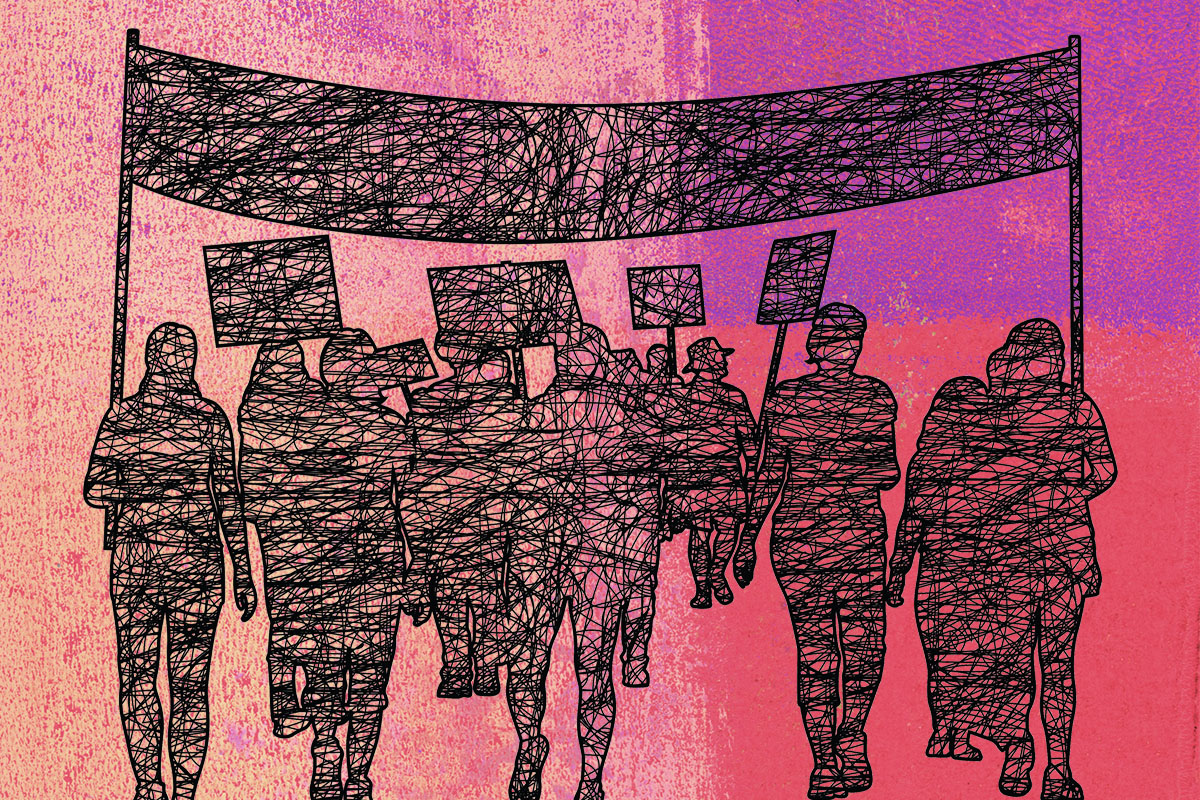Jewish women have been on the forefront of every major progressive social and political movement in the United States from the beginning. Jewish women rise up. Jewish women resist. And Jewish women persist.
It’s not surprising, then, that the controversies surrounding the Women’s March have been extraordinarily painful for the Jewish women who have been involved in organizing and participating the last few years. The long list of aggressions against Jewish women, both micro and macro, have been disappointing at best and alienating at worst. Statements from the leadership of the Women’s March national organization have done little to assure their Jewish participants that we are welcome and wanted. I’m unsure that we can feel like we are a part of this movement if it took over two years to include us in the march’s Unity Principles.
As a young woman, as a feminist, and as a Jew, I have been deeply conflicted over whether or not I would march this year. In 2017, my mother flew down to Washington, D.C. from Boston to march with me. And the year after, I organized a contingent of nearly 50 Jewish women to march with me. But this year I had all but decided to sit this one out. I cannot accept that I would be asked to check my Jewish identity at the door in order to appease the March’s leadership. It felt unreal to be expected to renounce my Judaism in order to prove I was a good progressive, a good feminist.
But I come from a long line of Jewish women, Jewish women with grit and determination. And that legacy tells me that desisting from a problematic movement doesn’t make it less problematic. Sitting out the Women’s March will not make it more intersectional. It will not help hold its leadership accountable.
That’s why I will be marching this Saturday. I will be one of hundreds of Jewish women who is marching for change, marching to resist, marching for our mothers and grandmothers and for our daughters. And I won’t be alone: I will be marching this year alongside some other badass Jewish women in a contingent lead by Jewish Women of Color.
We have an obligation as Jewish women to do our part to carve space for ourselves. We will not back away from the challenges that we face. We can believe in feminism and in tikkun olam without apology. We can hold the leaders of the Women’s March accountable and show up in solidarity with the women across our country who also need us. We can show up for ourselves. The struggle for justice is bigger than Tamika Mallory, Linda Sarsour, Carmen Perez, and Bob Bland.
My decision does not mean that I condone the actions of the March’s leadership, nor does it mean that I believe that anti-Semites should not be held accountable, both inside and outside of our movement. It means the struggle for equality is bigger than the Women’s March and bigger than the decisions of these four people. It’s more important than any one individual’s actions.
I want Jewish women to be part of the reason why the feminist movement succeeds — not part of the reason why it fails. Without Jewish voices in the movement, the Unity Principles cannot be achieved. A movement that allows anti-Semitism to drown out Jewish women is not a successful movement at all.
We, Jewish women, are the movement, alongside every other woman who recognizes the world is a dark and unjust place but who also know that we are able to — and going to — do something about it.



